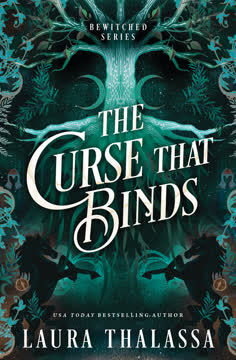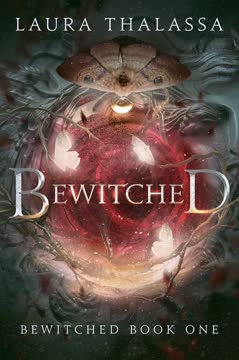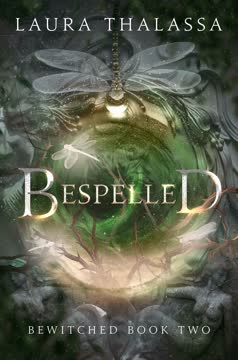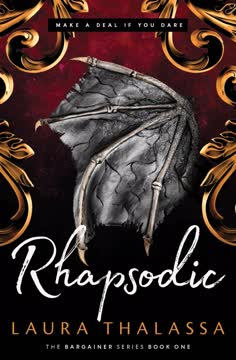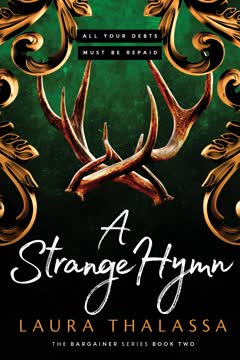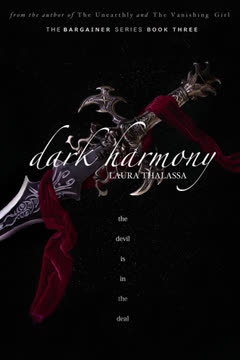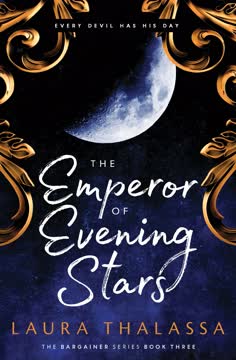Plot Summary
Fire and Bloodshed
Roxilana's story begins in fire and terror. At seven, her village in Britannia is razed by Roman soldiers. She loses her family in the chaos—her father is killed before her eyes, her mother and siblings lost to the flames. The trauma brands her soul, shaping her into a survivor. Captured and taken to Rome, she is thrust into a world of cruelty and servitude, her innocence burned away. This crucible of violence and loss becomes the foundation for her resilience, her rage, and the deep well of pain that will both haunt and empower her. The memory of that night—screams, fire, and the taste of ash—never leaves her, echoing through every choice she makes.
Voices in the Mind
In Rome, Roxilana endures the harshness of her new life, adopted by the bitter Livia, who inflicts daily abuse. Amidst this misery, a strange phenomenon emerges: a voice in her mind, speaking first in an unknown tongue, then in Latin. The voice belongs to Memnon, a Sarmatian boy thousands of miles away, who has been able to hear her thoughts for years. Their connection is inexplicable, magical, and at first, deeply unsettling. Yet, as they begin to communicate, a bond forms—one of shared pain, humor, and longing. This psychic link becomes Roxilana's only refuge, a secret world where she is seen and understood, and where the seeds of love and destiny are sown.
A Bond Forged
Over years, Roxilana and Memnon's nightly conversations become her lifeline. They share memories, fears, and dreams, transcending distance and culture. Memnon, a warrior-in-training, confesses to violence and killing, which horrifies Roxilana, but their honesty draws them closer. They teach each other language, comfort each other through pain, and become each other's only true friend. When Roxilana's magic awakens—first in self-defense against a Roman noble's assault—Memnon guides her, revealing that he too possesses latent power. Their connection deepens, blending thoughts, emotions, and even physical sensations, until they are inseparable in spirit, if not in body.
Surviving Rome's Cruelty
Roxilana's adolescence in Rome is marked by hardship. Livia's cruelty intensifies, and Roxilana's sense of self is battered. Yet, her bond with Memnon gives her strength. When she is attacked by a Roman noble, her magic erupts, saving her but terrifying her. Memnon helps her understand and control her power, revealing that magic is their birthright. Together, they navigate the dangers of their worlds—Roxilana as a powerless girl in Rome, Memnon as a young warrior facing brutal rites of passage. Their love grows in secret, a defiant act against the forces that seek to break them.
Magic Awakened
As Roxilana matures, her magic becomes both a weapon and a burden. She learns to heal, to defend, and to endure. Memnon's own magic awakens in battle, nearly killing him, but Roxilana's power saves his life across the miles. Their abilities are intertwined, their fates bound by forces beyond their understanding. The psychic bond between them intensifies, allowing them to share not just thoughts but pain, pleasure, and magic itself. This connection is both a blessing and a curse, isolating them from others but making them whole together.
Warrior and Witch
At eighteen, Roxilana faces a forced marriage in Rome. Memnon, now a king, vows to come for her. As her wedding approaches, hope and dread war within her. On the day of the ceremony, Memnon arrives with his Sarmatian warriors, disrupting the wedding and claiming Roxilana as his queen. In a whirlwind of violence and magic, she is freed from Rome's grasp. Together, they flee the city, defying the empire and forging a new life. Roxilana's transformation from victim to witch-queen is complete, her power and agency reclaimed through love, violence, and destiny.
Love Across Distance
Roxilana and Memnon's first meeting in the flesh is both awkward and electric. Years of psychic intimacy have not prepared them for the reality of touch, desire, and vulnerability. They struggle with fear, trauma, and the scars of their pasts, but their love is undeniable. Their first night together is a revelation—of passion, tenderness, and the healing power of being truly seen. As they travel east to Sarmatia, Roxilana learns the ways of Memnon's people, embracing her role as queen and warrior. Their bond, tested by distance and hardship, becomes unbreakable.
The Sarmatian King Arrives
In Sarmatia, Roxilana is introduced to a world of nomadic tribes, fierce warriors, and matriarchal traditions. Memnon's mother, Tamara, is a formidable queen, and Roxilana must prove herself worthy. She is tattooed with the clan's mark, trained in combat, and initiated into the rituals of her new people. The couple's love is both a source of strength and a political tool, uniting the tribes and inspiring loyalty. Yet, danger lurks in the form of rival kings, Roman threats, and the ever-present specter of betrayal. Roxilana's magic and Memnon's leadership are tested as they build an empire on the edge of the known world.
Wedding and Defiance
Roxilana and Memnon's Sarmatian wedding is a spectacle of blood and magic. They spill their blood into a cup of wine, drink, and bind their souls together before their people. The ceremony is both a personal and political act, defying Rome and uniting the tribes. Their marriage is passionate, tempestuous, and deeply equal—each challenging and completing the other. Together, they preside over their people, dispensing justice, forging alliances, and preparing for the wars to come. Their love is a beacon, but also a target, as enemies plot to destroy what they have built.
Magic, Power, and Passion
As queen, Roxilana hones her magic, learning to wield it in battle and in healing. Memnon's power grows, but so does its darkness—his magic is bloodthirsty, threatening to consume his conscience. Together, they face the moral cost of their abilities, struggling to remain human in a world that demands brutality. Their passion is undiminished, but the pressures of leadership, war, and infertility strain their bond. The arrival of Eislyn, a cunning fae advisor, introduces new dangers—temptation, manipulation, and the threat of betrayal from within.
The Emperor's Bargain
Rome cannot ignore the rise of the Sarmatian empire. Emperor Nero sends armies, assassins, and sorcerers to destroy Memnon and Roxilana. The couple faces betrayal from within—their closest allies turn against them, lured by Roman promises. In a devastating coup, Roxilana's family is murdered, and Memnon is cursed into a magical sleep by Eislyn, who reveals her true, treacherous nature. Roxilana, gravely wounded, flees through the ley lines—magical roads between worlds—desperate to save her husband and herself from annihilation.
Panther and Queen
Roxilana's bond with her panther, Ferox, becomes a symbol of her wildness and resilience. Together, they survive assassination attempts, magical battles, and the loss of their unborn child. Grief and rage drive Roxilana to new heights of power—and new depths of darkness. She becomes a force of vengeance, feared by enemies and allies alike. Yet, her love for Memnon remains her anchor, the one thing that keeps her from losing herself entirely to bloodlust and despair.
Lessons in Power
With Memnon cursed and the Sarmatian empire in ruins, Roxilana makes a desperate bargain with the gods. She sacrifices her memories, her life, and her very soul to cast a spell that will hide Memnon from the world, ensuring he survives until she can find him again. The curse erases all memory of Memnon from history, from the minds of mortals and immortals alike. Roxilana dies, her soul bound to the vow that she will one day return and awaken her king. The price of power is everything—love, memory, and self.
Blood and Betrayal
The final days of the Sarmatian empire are marked by betrayal. Zosines, Memnon's blood brother, conspires with Rome and Eislyn to overthrow the king and queen. Tamara and Katiari are murdered, and Roxilana is forced to slaughter her own people in a desperate bid to survive. The palace falls, and Roxilana, mortally wounded, escapes through the ley lines to the river palace, where she finds Memnon entombed in magical sleep. In a final act of love and defiance, she seals him away, curses the world to forget him, and dies, her soul bound to his.
The Price of Vengeance
Memnon, driven mad by grief, sacrifices his conscience and countless lives to bring Roxilana back from the dead. The act changes him, making him colder, more ruthless, and feared even by his own people. Roxilana, resurrected, is haunted by the wrongness of her return and the darkness in Memnon's soul. Their love endures, but the cost is immense—innocence, compassion, and the hope of peace. The cycle of violence continues, fueled by ambition, loss, and the hunger for power.
Empire of Conquest
With Eislyn's manipulations, Memnon and Roxilana unite the steppe nations, forging an empire to challenge Rome itself. Their victories are pyrrhic, each battle costing more than the last. Roxilana, weary of bloodshed, pleads for peace, but Memnon is driven by grief, pride, and the promise of glory. The couple's love is tested by ambition, betrayal, and the ever-present threat of death. As Rome closes in, the dream of a better life slips further from their grasp.
The Fairy's Treachery
Eislyn's true motives are revealed—she desires Memnon for herself and orchestrates the downfall of the Sarmatian empire. In a final act of treachery, she curses Memnon into a magical sleep and mortally wounds Roxilana. As Roxilana dies, she makes a desperate bargain with the gods, sacrificing her memories and her life to cast a curse that will erase Memnon from the world's memory, ensuring his survival until she can find him again. The world forgets Memnon, and Roxilana's soul is cast adrift, bound only by the promise to return.
Death, Sacrifice, and Immortality
Centuries pass. Roxilana's soul is reborn, her memories lost but her magic and longing undiminished. In the present day, a young woman with cinnamon hair and bright eyes discovers a forgotten tomb in the Amazon. Guided by instinct and magic, she opens the sarcophagus and awakens Memnon from his centuries-long sleep. Their story, one of love, loss, and sacrifice, begins anew—proof that some bonds are eternal, and that even the gods cannot sever the ties of true soul mates.
Characters
Roxilana
Roxilana is forged in fire and loss, her childhood destroyed by Roman violence. She is fiercely intelligent, resilient, and compassionate, but also marked by trauma and rage. Her psychic bond with Memnon is her salvation, giving her hope and purpose. As she grows, she becomes a powerful witch, a skilled warrior, and a passionate lover. Her journey is one of reclaiming agency, embracing her magic, and fighting for love in a world that seeks to break her. She is both victim and victor, haunted by the past but unyielding in her pursuit of a better future. Her greatest strength is her capacity for love—and her willingness to sacrifice everything for it.
Memnon
Memnon is a Sarmatian prince turned king, raised in a culture of violence and honor. He is fierce, proud, and deeply loyal, but also haunted by the darkness of his magic. His psychic connection to Roxilana is both a blessing and a curse, making him vulnerable and human. As his power grows, so does its cost—his conscience is eroded, and he becomes feared even by his own people. Yet, his love for Roxilana remains his anchor, the one thing that keeps him from losing himself entirely. He is both conqueror and protector, driven by ambition, grief, and the desperate need to keep his soul mate safe.
Livia
Livia is the embodiment of Rome's brutality and hypocrisy. She adopts Roxilana but treats her with contempt and violence, shaping Roxilana's sense of self and her distrust of authority. Livia's abuse is both physical and psychological, leaving scars that Roxilana must overcome. She represents the world's indifference to suffering and the challenge of breaking free from cycles of pain.
Tamara
Tamara is Memnon's mother and the former queen of the Sarmatians. She is formidable, wise, and fiercely protective of her family and people. She challenges Roxilana to become strong, both as a warrior and as a leader. Tamara's approval is hard-won, but her love is deep. Her death marks the end of an era and the loss of a guiding force in Roxilana's life.
Katiari
Katiari is Memnon's sister and Roxilana's closest friend in Sarmatia. She is brave, loyal, and compassionate, providing support and camaraderie. Her death in the Roman coup is a devastating blow, symbolizing the cost of ambition and the fragility of happiness.
Zosines
Zosines is Memnon's childhood friend and sworn brother, a skilled warrior with a hunger for power. His eventual betrayal, motivated by ambition and jealousy, is a profound wound for both Memnon and Roxilana. Zosines represents the dangers of unchecked desire and the corrosive effects of envy.
Eislyn
Eislyn is a cunning, immortal fairy who has advised Memnon's family for generations. She is beautiful, enigmatic, and deeply ambitious, desiring Memnon for herself. Her machinations drive much of the novel's tragedy—she engineers the coup, curses Memnon, and wounds Roxilana. Eislyn embodies the seductive allure of power and the destructive potential of obsession.
Ferox
Ferox is more than a pet—he is Roxilana's magical familiar, a symbol of her untamed spirit and her bond with the natural world. He protects her, fights alongside her, and provides comfort in times of grief. Ferox's survival and freedom at the end of the story represent hope and the enduring power of love.
Ilyapa
Ilyapa is a powerful sorcerer-king from a distant land, whose bloodline gives Memnon his magic. He is wise but emotionally distant, his own conscience eroded by power. His death marks a turning point, leaving Memnon vulnerable to Eislyn's influence and the darkness within himself.
Emperor Nero
Nero is the distant, dangerous antagonist whose machinations threaten Memnon and Roxilana. He is cunning, ruthless, and unyielding, representing the might and moral rot of the Roman Empire. His vendetta against the couple drives much of the novel's conflict and ultimate tragedy.
Plot Devices
Psychic Bond and Dual POV
The central device is the psychic bond between Roxilana and Memnon, allowing them to communicate, share emotions, and even physical sensations across vast distances. This connection is both a narrative engine and a metaphor for soul mates—two halves of a whole, destined to find each other. The story often shifts between their perspectives, deepening the reader's understanding of their inner lives and the evolution of their relationship.
Magic as Power and Corruption
Magic in this world is both a gift and a curse. It allows Roxilana and Memnon to survive, to heal, and to conquer, but it also demands a price. For Memnon, the more he uses his power, the more his conscience is eroded, making him colder and more ruthless. This device explores the moral cost of power, the temptation of violence, and the struggle to remain human in the face of overwhelming ability.
Ley Lines and Immortality
Ley lines—magical roads between worlds—allow for travel, escape, and the manipulation of fate. They are also the site of bargains with gods and the setting for the novel's climactic sacrifices. The use of ley lines and magical curses enables the story's final twist: Roxilana's soul is reborn centuries later, destined to find Memnon again. This device ties together themes of fate, sacrifice, and the eternal nature of true love.
Betrayal and Political Intrigue
The novel is rife with betrayal—by friends, family, and lovers. Political intrigue drives much of the plot, as Roxilana and Memnon must navigate shifting alliances, coups, and the ever-present threat of Roman intervention. The story uses foreshadowing and dramatic irony to build tension, often revealing the seeds of betrayal long before they bear fruit.
Foreshadowing and Reincarnation
From the beginning, the narrative is laced with foreshadowing—visions, prophecies, and the sense that Roxilana and Memnon's love is both fated and doomed. The final chapters reveal that their story is not truly over; Roxilana's soul is reborn, and the cycle of love, loss, and reunion will begin again. This device reinforces the novel's central message: that some bonds are eternal, surviving even death and the erasure of memory.
Analysis
The Curse that Binds is a sweeping, darkly romantic epic that explores the transformative power of love, the corrosive effects of violence, and the high cost of ambition. At its heart, it is a story about two broken souls—Roxilana and Memnon—who find in each other the strength to survive, to fight, and to hope. Their psychic bond is both a literal and metaphorical connection, symbolizing the ways in which love can transcend trauma, distance, and even death. The novel interrogates the nature of power—magical, political, and personal—showing how it can both save and destroy. Through its use of magic, reincarnation, and historical detail, the book asks what we are willing to sacrifice for love, and whether true peace is ever possible in a world built on blood. Ultimately, The Curse that Binds is a meditation on resilience, the cyclical nature of history, and the belief that some loves are truly eternal—surviving even the gods' attempts to
Last updated:
FAQ
Synopsis & Basic Details
What is The Curse that Binds about?
- A Fated Love Story: The Curse that Binds chronicles the epic, centuries-spanning romance between Roxilana, a Roman-raised Briton, and Memnon, a Sarmatian king. Their journey begins with a mysterious psychic bond formed in childhood, allowing them to communicate across vast distances and cultures.
- From Trauma to Triumph: Roxilana, orphaned by Roman violence and raised in servitude, finds solace and strength in her connection with Memnon. As their latent magical powers awaken, they defy the oppressive forces of the Roman Empire and unite the nomadic tribes of Sarmatia, forging an empire on the edge of the known world.
- War, Magic, and Sacrifice: The narrative follows their tumultuous reign, marked by fierce battles, political intrigue, and profound personal losses, including the tragic death of their child. Faced with betrayal and the relentless might of Rome, their love is tested to its limits, culminating in a desperate act of sacrifice that transcends time and memory.
Why should I read The Curse that Binds?
- Deeply Emotional Psychic Bond: Experience a unique love story where protagonists share thoughts, emotions, and even physical sensations across continents, offering unparalleled intimacy and character development. This psychic connection is central to the novel's emotional depth and narrative drive.
- Rich Historical Fantasy: Immerse yourself in a meticulously researched world blending ancient Roman and Sarmatian cultures with a powerful magic system. The book offers a fresh perspective on historical fantasy, focusing on nomadic warrior societies and their clash with the Roman Empire.
- Themes of Resilience and Destiny: Explore profound themes of overcoming trauma, the corrupting nature of power, the meaning of sacrifice, and the enduring strength of a love fated to span lifetimes. The narrative delves into the psychological impact of violence and the choices made in the pursuit of survival and vengeance.
What is the background of The Curse that Binds?
- Ancient World Setting: The story is primarily set in the 1st century AD, spanning from Roman Britannia and Rome itself to the vast steppes of Sarmatia near the Black Sea. This historical backdrop provides a rich tapestry of cultural clashes, political tensions, and military might.
- Sarmatian Culture as Inspiration: The author draws heavily from the real-life Sarmatian nomadic people, known for their fierce warrior women and egalitarian society, which inspired the mythical Amazons. Details like blood-brother rituals, skull chalices, and the role of Anarya priests are historically rooted, offering an authentic feel to Memnon's world.
- Authorial Liberties for Modern Sensibilities: While grounded in history, the narrative takes deliberate liberties, such as omitting the historical prevalence of slavery and adjusting the age of marriage for Roman girls, to create a more palatable and emotionally resonant story for contemporary readers, as detailed in the author's note.
What are the most memorable quotes in The Curse that Binds?
- "So long as I am alive, you will never die." (Roxilana, Chapter 6): This powerful vow, made by Roxilana to Memnon after saving his life, encapsulates her fierce loyalty and foreshadows the extreme lengths she will go to protect him, even defying death itself. It highlights the core theme of eternal devotion.
- "I will conquer the world just to lay it all at your feet." (Memnon, Chapter 7 & 32): First spoken as a declaration of love and later reiterated as a solemn promise, this quote reveals Memnon's boundless ambition and his singular motivation: to give Roxilana everything, even if it means challenging the might of Rome. It underscores his protective and possessive nature.
- "Power always exacts a cost. Always." (Ilyapa, Chapter 21): Memnon's father, a sorcerer king whose own conscience has been eroded by magic, delivers this chilling warning to Roxilana. It serves as a crucial piece of foreshadowing for Memnon's eventual struggle with his bloodthirsty power and the sacrifices he makes for love.
What writing style, narrative choices, and literary techniques does Laura Thalassa use?
- First-Person Dual Perspective: The narrative primarily unfolds through Roxilana's first-person perspective, offering intimate access to her thoughts, emotions, and experiences. This is enriched by Memnon's internal monologue and shared emotions via their psychic bond, creating a unique dual perspective that deepens character insight.
- Sensory-Rich and Visceral Prose: Thalassa employs vivid, often raw, sensory descriptions, particularly in scenes of violence, intimacy, and magical manifestation. Readers experience the "taste of smoke and ash," the "metallic tang of terror," and the "fire that burns and consumes" in their love, making the emotional and physical stakes palpable.
- Foreshadowing and Thematic Repetition: The author skillfully weaves in subtle hints and recurring motifs, such as the cyclical nature of violence, the cost of power, and the inevitability of destiny. Phrases like "vengeful spirit" and "eternal soul mate" are repeated, reinforcing core themes and building a sense of fatedness that culminates in the reincarnation plot.
Hidden Details & Subtle Connections
What are some minor details that add significant meaning?
- Livia's Fleeting Concern: In Chapter 2, after Livia's abuse, she briefly looks "concerned, like she might've taken things too far." This subtle detail hints at a deeper, albeit buried, humanity within Livia, suggesting her cruelty stems from her own unresolved grief rather than pure malice, making her a more complex antagonist.
- Ley Line Entrances on Kurgans: Roxilana's discovery that ley line entrances are often found atop Sarmatian burial mounds (Chapter 29) subtly links these magical pathways to the concept of the afterlife and ancestral power. This connection foreshadows her later use of the ley line to access a realm beyond life and death for Memnon.
- Memnon's "Pretty" Hair and Beard: Memnon's initial long hair and beard are symbols of his Sarmatian identity and warrior status. His willingness to cut them for Roxilana (Chapter 12) is a profound act of vulnerability and devotion, showing his desire to shed intimidating aspects of himself for her comfort, a stark contrast to his later, more ruthless persona.
What are some subtle foreshadowing and callbacks?
- Roxilana's "Vengeful Spirit" Nickname: Early in their bond (Chapter 3), Memnon jokingly calls Roxilana a "vengeful spirit" and predicts she'll eventually kill. This lighthearted banter subtly foreshadows her later descent into ruthless violence and her "annihilate" spells on the battlefield, fulfilling a dark aspect of her destiny.
- The "Knot of Hercules" on Roxilana's Wedding Tunic: In Chapter 12, Nero mentions the "knot of Hercules" on Roxilana's Roman wedding tunic, a traditional Roman symbol of marital fidelity that the husband unties. This detail subtly highlights the subversion of Roman tradition as Memnon, a "barbarian king," unties it, symbolizing his claim over her and her new, non-Roman identity.
- Ilyapa's Emotional Blunting: Memnon's father, Ilyapa, describes his emotions as "blunted" due to his magic (Chapter 21), feeling only a "spark of fondness where once fires raged." This chilling confession directly foreshadows Memnon's own struggle with his conscience after resurrecting Roxilana, hinting at the inevitable cost of his sorcery.
What are some unexpected character connections?
- Ferox's Unwavering Loyalty to Roxilana: While Memnon is his primary bond, Ferox consistently prioritizes Roxilana's safety and comfort, even defying Memnon's orders to stay away from battle (Chapter 27). This highlights Ferox as a symbol of unconditional love and protection, mirroring Roxilana's own fierce devotion to Memnon.
- Katiari's Hidden Vulnerability and Insight: Despite her warrior persona, Katiari reveals a deep emotional intelligence, understanding the true cost of Memnon's resurrection magic (Chapter 39) and her own private struggles with societal expectations (Chapter 34). Her connection with Roxilana offers a rare glimpse into the internal lives of Sarmatian women beyond their fierce exterior.
- Zosines's Covetousness for Roxilana: Zosines, Memnon's blood brother, initially appears as a loyal friend, but subtle hints of his desire for Roxilana emerge (Chapter 30, 32). His eventual betrayal is partly fueled by this covetousness, revealing a darker, more personal motivation behind his political ambition than initially perceived.
Who are the most significant supporting characters?
- Tamara, the Matriarchal Mentor: Memnon's mother, Tamara, is crucial not just as a former queen but as Roxilana's primary mentor in Sarmatian ways. She pushes Roxilana to embrace her power and leadership, even orchestrating her tattoo (Chapter 22) and challenging her to overcome her vulnerabilities, shaping her into a formidable queen.
- Eislyn, the Fae Manipulator: Beyond her role as an antagonist, Eislyn is a pivotal catalyst for Memnon's ambition and the empire's expansion. Her subtle manipulations and "honeyed venom" (Chapter 34) exploit Memnon's grief and pride, driving him towards conquest and ultimately setting the stage for the tragic coup.
- Ferox, the Loyal Familiar: More than a pet, Ferox is Roxilana's magical familiar and emotional anchor. His presence provides comfort, protection, and a tangible link to Roxilana's wild, untamed nature. His survival and eventual freedom symbolize the enduring hope for a life beyond the curses and conflicts.
Psychological, Emotional, & Relational Analysis
What are some unspoken motivations of the characters?
- Livia's Grief-Driven Cruelty: Livia's constant abuse of Roxilana (Chapter 2) is implicitly linked to her own past loss of a husband and daughter. Her harshness is a twisted manifestation of her inability to process grief, projecting her pain onto Roxilana rather than nurturing her, a common psychological defense mechanism.
- Memnon's Need for Roxilana's Approval: Despite his fierce warrior persona, Memnon deeply craves Roxilana's acceptance and admiration. His eagerness to impress her (Chapter 11), his vulnerability when she's upset (Chapter 12), and his constant reassurance of her worth (Chapter 18) reveal a profound emotional dependency that grounds his otherwise ruthless ambition.
- Eislyn's Obsessive Desire for Memnon: Eislyn's long-term machinations are driven by an unstated, almost possessive, desire for Memnon. Her attempts to isolate him from Roxilana (Chapter 34) and her plan to have him awaken to a world where "all that will be left is me" (Chapter 43) suggest a deep-seated obsession that transcends mere political ambition.
What psychological complexities do the characters exhibit?
- Roxilana's Trauma-Induced Rage and Compassion: Roxilana's childhood trauma (Chapter 1) instills in her a deep-seated rage and a fierce protective instinct. This manifests as both ruthless violence on the battlefield (Chapter 25, 42) and profound compassion for the vulnerable, creating a complex internal conflict between her desire for peace and her capacity for vengeance.
- Memnon's Eroding Conscience and Devotion: Memnon's sorcery comes at the cost of his conscience (Chapter 21), making him increasingly cold and ruthless. Yet, his devotion to Roxilana remains absolute, creating a psychological paradox where his love for her is the only thing tethering him to his humanity, even as his actions become monstrous.
- The Psychological Burden of the Psychic Bond: The constant, unfiltered access to each other's thoughts and emotions (Chapter 2, 3) creates an intense, almost suffocating intimacy. While it fosters deep understanding, it also removes personal boundaries, making it difficult for them to hide vulnerabilities or process individual pain, as seen in Roxilana's reaction to Memnon's grief (Chapter 33).
What are the major emotional turning points?
- Roxilana's First Act of Magic in Self-Defense (Chapter 5): When attacked by Gaius, Roxilana's magic erupts, pushing him away. This moment is a pivotal emotional turning point, transforming her from a passive victim into an active agent of her own protection, awakening her to a power she never knew she possessed and shifting her self-perception.
- Memnon's Near-Death and Roxilana's Saving Act (Chapter 6): Memnon's near-fatal injury in battle and Roxilana's desperate act of funneling her magic to him, awakening his own power, solidifies their bond. This event transcends friendship, cementing their roles as each other's saviors and deepening their emotional reliance.
- The Miscarriage and Shared Grief (Chapter 29): The loss of their unborn child is a devastating emotional turning point, plunging both Roxilana and Memnon into profound grief. This shared trauma, and Memnon's subsequent act of vengeance, marks a significant shift in their emotional landscape, hardening them against the world.
- Memnon's Resurrection of Roxilana (Chapter 37): Memnon's desperate, blasphemous act of sacrificing lives to bring Roxilana back from the dead is the ultimate emotional climax. It demonstrates his boundless love and refusal to accept her loss, but also irrevocably alters his conscience and introduces a "wrongness" into Roxilana's resurrected state, forever changing their dynamic.
How do relationship dynamics evolve?
- From Psychic Refuge to Physical Intimacy: The relationship between Roxilana and Memnon evolves from a secret psychic refuge in their youth (Chapter 2) to a passionate, physically intimate bond (Chapter 14). Their initial awkwardness upon meeting in person gives way to a deep sexual and emotional connection, where their shared magic enhances their physical intimacy.
- Roxilana's Growth from Dependent to Equal Partner: Initially dependent on Memnon for emotional support and guidance in magic, Roxilana gradually asserts her agency, becoming a formidable warrior and queen (Chapter 24, 31). Their relationship shifts from a mentor-mentee dynamic to one of mutual respect and shared leadership, where she challenges his decisions and commands him in return (Chapter 19, 40).
- The Strain of Power and External Threats: The external pressures of war, empire-building, and betrayal (Chapter 31, 36) constantly test their bond. Memnon's increasing ruthlessness due to his magic's cost (Chapter 37, 40) and Eislyn's manipulations create friction, forcing Roxilana to confront the darker aspects of her husband and their shared destiny.
Interpretation & Debate
Which parts of the story remain ambiguous or open-ended?
- The True Nature of the Ley Line's Sentience: While Roxilana learns the ley line can be "swayed with words" and accepts offerings (Chapter 30, 42), its true nature remains ambiguous. Is it a sentient entity, a conduit for gods, or simply a magical phenomenon responding to powerful intent? The story leaves its ultimate consciousness open to interpretation.
- The Extent of Memnon's Conscience Erosion: Ilyapa warns that a sorcerer's power "eats away at our conscience" (Chapter 21), and Memnon's actions become increasingly ruthless after Roxilana's death (Chapter 37, 41). However, his unwavering love and tenderness for Roxilana persist. The narrative leaves it debatable whether his conscience is truly gone or merely suppressed, and if Roxilana's love can ultimately redeem him.
- The Identity of the "Hungering Ones" / Voice in the Blood: During Roxilana's most violent magical outbursts (Chapter 27, 31), she hears disembodied voices whispering "Empressss... Thief... Murderer." These "Hungering Ones" are implied to be entities connected to the blood-borne magic she draws upon, but their origin, purpose, and ultimate influence on her remain largely unexplained.
What are some debatable, controversial scenes or moments in The Curse that Binds?
- Memnon's Cursing of the Dacian Captives (Chapter 25): Memnon's decision to curse the Dacian prisoners, forcing them to slaughter their own people before dying, is a deeply controversial act. While presented as a brutal act of war and retribution, it raises ethical questions about the morality of using magic to inflict such psychological and physical torment, even on enemies.
- Roxilana's Embrace of "Annihilate" Magic (Chapter 27, 42): Roxilana's initial reluctance to kill gives way to a fierce, almost bloodthirsty use of her "annihilate" spell, blowing enemies apart. This transformation, fueled by grief and rage, is debatable: is it a necessary evolution for a warrior queen, a tragic corruption of her compassionate nature, or a justified response to extreme violence?
- The Morality of Memnon's Resurrection of Roxilana (Chapter 37): Memnon sacrifices numerous Roman prisoners in a temple ritual to bring Roxilana back from the dead. This act, while driven by love, is described as "unholy" and "blasphemy" by Katiari. It forces readers to weigh the sanctity of life and the boundaries of magic against the desperate desire to defy death for a loved one.
The Curse that Binds Ending Explained: How It Ends & What It Means
- Roxilana's Ultimate Sacrifice: The Curse that Binds ending explained reveals Roxilana, mortally wounded and with Memnon cursed into a hundred-year sleep by Eislyn, makes a final, desperate bargain. She uses her remaining magic to cast a powerful curse that erases all memory of Memnon from the world, including her own, ensuring his undisturbed slumber and protection from his enemies. This act of self-erasure is the ultimate sacrifice for love.
- The Cycle of Reincarnation and Fated Reunion: Roxilana dies, her soul bound by her vow to awaken Memnon. The epilogue jumps two millennia into the present day, where a reincarnated Roxilana, bearing the same physical traits and magic but a different identity, discovers Memnon's tomb. Her innate connection and magic compel her to awaken him, fulfilling their eternal bond and setting the stage for their next life together. This highlights themes of destiny and the enduring power of true love.
- Meaning: Love Transcends All, Even Memory: The ending of The Curse that Binds signifies that the bond between Roxilana and Memnon is so profound it defies death, time, and even the erasure of memory. It suggests that true soul mates are destined to find each other across lifetimes, and that love, in its purest form, is an immortal force capable of reshaping reality itself. The sacrifice of memory underscores the idea that their connection is deeper than conscious recollection, residing in the very essence of their souls.
Review Summary
The Curse that Binds is a highly anticipated prequel to Laura Thalassa's Bewitched series, receiving overwhelmingly positive reviews. Readers praise the deep exploration of Roxilana and Memnon's origin story, set in ancient Rome. The book offers insight into their complex relationship and tragic fate, enhancing the overall series. Many found it emotionally impactful, with strong character development and well-researched historical elements. While some noted pacing issues, most readers consider it a must-read for fans of the series, eagerly anticipating the next installment.
Bewitched Series
Download PDF
Download EPUB
.epub digital book format is ideal for reading ebooks on phones, tablets, and e-readers.
